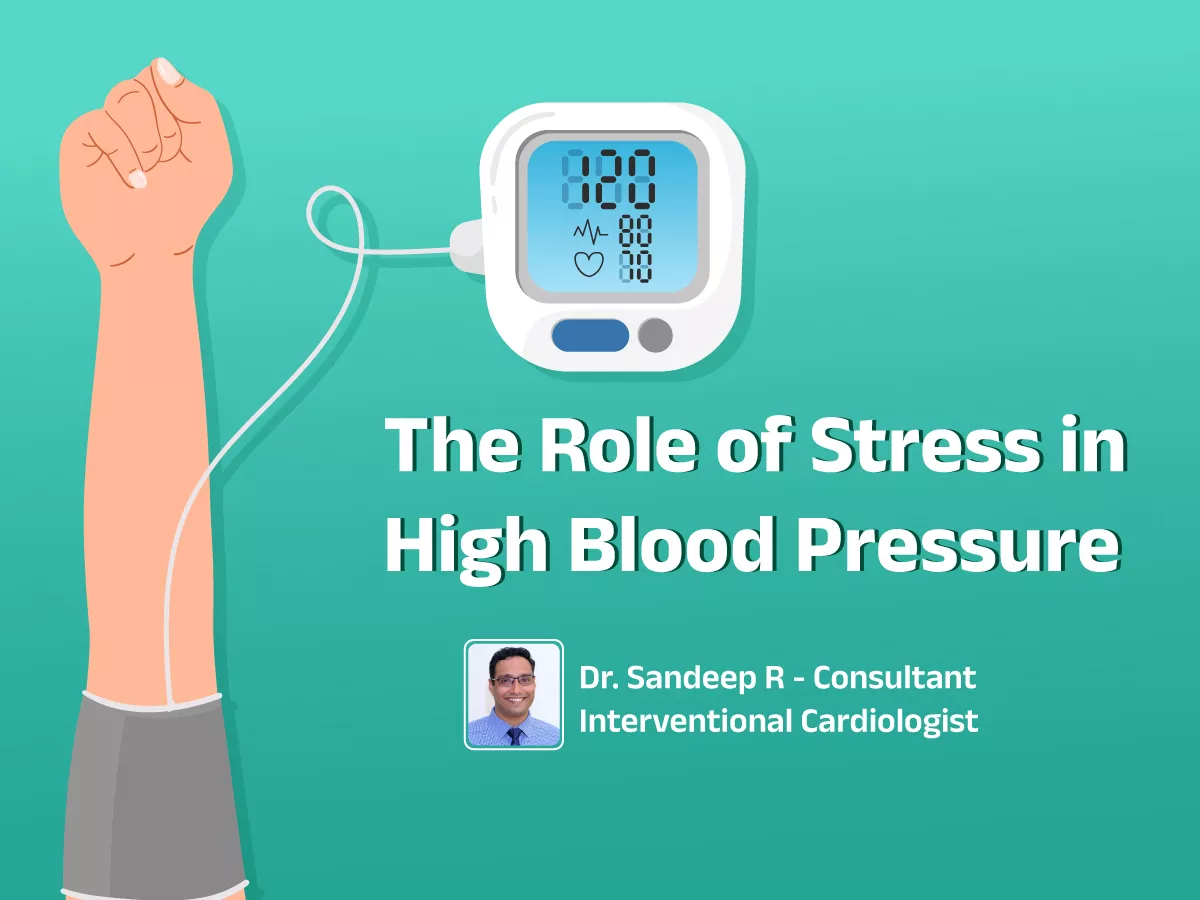Stress is a significant factor that can influence blood pressure and overall cardiovascular health. Understanding the relationship between stress and high blood pressure (hypertension) can help individuals manage their condition more effectively. Here’s an in-depth look at how stress affects blood pressure and what can be done to mitigate its impact.
How Stress Affects Blood Pressure?
- Physiological Response to Stress: When an individual experiences stress, the body releases stress hormones such as adrenaline and cortisol. These hormones prepare the body for a "fight or flight" response, causing temporary increases in heart rate and blood pressure. This is a normal reaction, but frequent or chronic stress can lead to sustained high blood pressure.
- Behavioral Responses to Stress: Stress often leads to unhealthy behaviors that can contribute to high blood pressure. These include:
- Poor Diet: People under stress may consume more unhealthy foods, high in salt, fat, and sugar, which can elevate blood pressure.
- Alcohol Consumption: Increased alcohol intake as a way to cope with stress can raise blood pressure.
- Smoking: Some individuals may smoke more when stressed, and nicotine raises blood pressure.
- Physical Inactivity: Stress can lead to fatigue and a lack of motivation to exercise, which is essential for maintaining healthy blood pressure.
- Chronic Stress and Hypertension: Prolonged stress can lead to chronic high blood pressure. Persistent stress keeps the body in a heightened state of alert, which means blood pressure remains elevated for longer periods. Over time, this can damage the heart, blood vessels, and kidneys, increasing the risk of cardiovascular disease and stroke.
Managing Stress to Control Blood Pressure
Lifestyle Changes:
- Regular Exercise: Physical activity is a powerful stress reliever and helps lower blood pressure by keeping the heart and blood vessels in good condition. Aim for at least 30 minutes of moderate exercise most days of the week.
- Healthy Diet: Eating a balanced diet rich in fruits, vegetables, whole grains, and lean proteins can improve overall health and reduce stress. The DASH (Dietary Approaches to Stop Hypertension) diet is particularly effective for managing blood pressure.
- Limit Alcohol and Avoid Smoking: Reducing alcohol consumption and quitting smoking can significantly lower blood pressure and reduce stress levels.
Stress Management Techniques:
- Mindfulness and Meditation: Practices like mindfulness meditation, deep breathing exercises, and yoga can help reduce stress and lower blood pressure.
- Adequate Sleep: Quality sleep is essential for stress management and overall health. Aim for 7-9 hours of sleep per night.
- Time Management: Effective time management skills can reduce stress by helping individuals feel more in control of their schedules and responsibilities.
- Relaxation Techniques: Engaging in activities that promote relaxation, such as reading, listening to music, or spending time in nature, can help alleviate stress.
Professional Support:
- Counseling or Therapy: Speaking with a mental health professional can provide strategies to manage stress more effectively.
- Support Groups: Joining a support group for people with hypertension or chronic stress can provide a sense of community and shared experiences.
Monitoring and Medication:
- Regular Monitoring: Keeping track of blood pressure at home can help individuals see how stress impacts their readings and identify patterns.
- Medication: In some cases, doctors may prescribe medications to manage both hypertension and stress-related conditions. It’s important to follow medical advice and take prescribed medications as directed.
Conclusion:
While stress is an inevitable part of life, its impact on blood pressure can be managed through a combination of lifestyle changes, stress management techniques, and professional support. By understanding the role of stress in high blood pressure and taking proactive steps to reduce stress, individuals can improve their cardiovascular health and overall w












